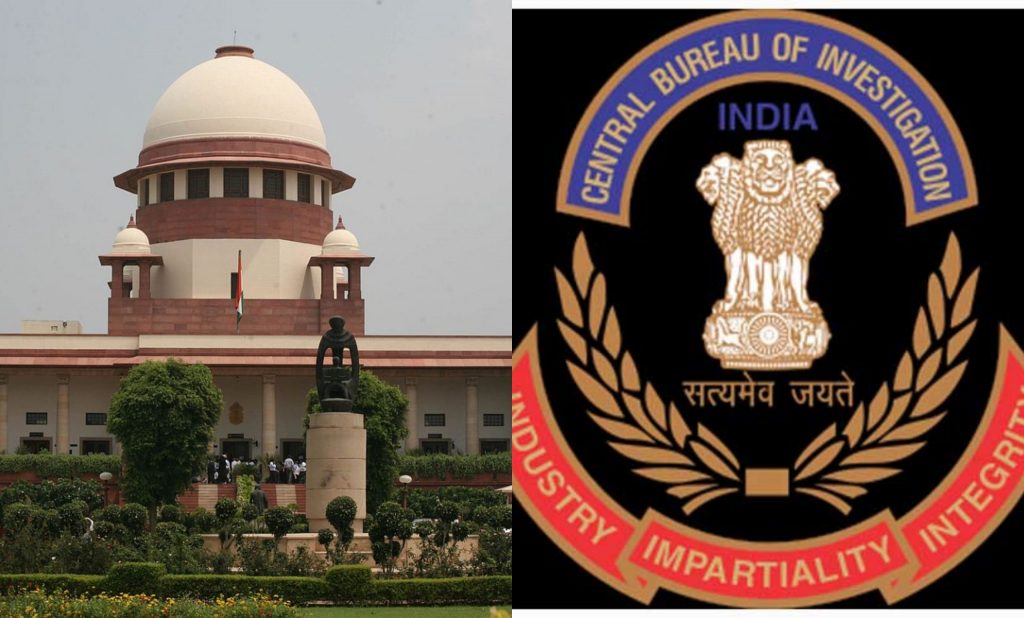I n May 2013, while hearing a matter related to the coal scam, a Supreme Court Bench led by Justice RM Lodha, who has now retired, had made scathing observations on the Central Bureau of Investigation (CBI), dubbing it as a “caged parrot speaking in master’s voice.”
Eleven years down the line, the top court’s perception of the country’s premier probe agency has not changed. This was evident from the observations made by Justice Ujjal Bhuyan while granting bail to Delhi Chief Minister and Aam Aadmi Party supremo Arvind Kejriwal in a corruption case lodged by the CBI in connection with the excise policy case. Justice Bhuyan noted that in a functional democracy that upholds the rule of law, public perception is vital. He emphasised that an investigative agency must maintain a position of integrity and transparency. “It is imperative that CBI dispel the notion of it being a caged parrot,” Justice Bhuyan said in his 31-page concurring verdict. He stressed that investigations should not only be conducted fairly but also be perceived as such.
In order to do that, all efforts should be made to eliminate any impression that the inquiry was unfairly executed or that arrests were made in an arbitrary and biased way. It may be noted that Kejriwal, who was arrested by the ED in connection with the excise policy case on 21 March, was granted interim bail on 10 May to campaign for the Lok Sabha elections. He has been in custody since 2 June, when he surrendered as per the court’s order. Justice Bhuyan raised concerns about the timing of Kejriwal’s arrest by the CBI, suggesting that the agency’s intention was to hinder his chances of obtaining bail in the ED case. He stated that the CBI cannot defend the arrest and ongoing detention by pointing to Kejriwal’s evasive responses, emphasising that a lack of cooperation does not equate to self incrimination. “I fail to understand the CBI’s urgency to arrest Kejriwal on cusp of release in the ED case when it did not do so for 22 months,” Justice Bhuyan said. Meanwhile, Kejriwal surprised his adversaries when he announced Sunday that he would resign within two days and seek early polls in November instead of February, when polls to the national capital are due.
The AAP leader made his intentions clear when he said that he will not sit on the Chief Minister’s chair till the people give him a “certificate of honesty.” It is obvious that it will be difficult for the Delhi CM to conduct his duties properly, with the apex court having given conditional bail with a lot of restrictions on office proceedings and conduct like barring visiting his office at the Secretariat and signing any official files. Resignation seems to be a better choice in this situation for Arvind Kejriwal.
The developments over the past decade have made it pretty apparent that the Central probe agencies such as the CBI and the ED have become pawns at the hands of political bosses. They are ruthlessly used by the ruling party against political adversaries to settle scores. The timings of the arrests make them all the more doubtworthy. This is evident in the arrests of Arvind Kejriwal and Jharkhand Chief Minister Hemant Soren, as also, AAP leader Manish Sisodia and BRS leader K Kavitha, in the run-up to 2014 general elections. One of the biggest indicators for the survival of democracy in a country is the independence of its institutions. When institutions function with integrity and stand up to arbitrary rule, they ensure a healthy check and balance system and bring justice to the people. And when these institutions get compromised, they spell doom for democracy. In this context, the Prime Minister’s much publicised visit to the residence of Chief Justice of India DY Chandrachud on the occasion of Ganesh Chaturthi has raised eyebrows and concerns regarding the judiciary’s independent image.
